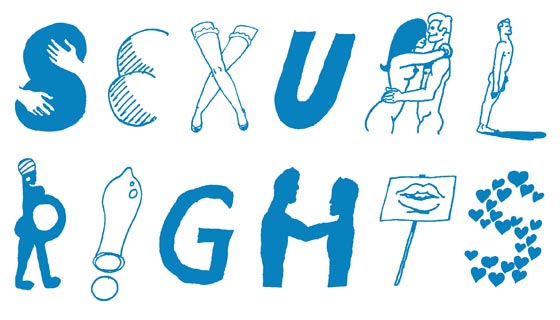Continuing our previous post on sexual rights part one, there are some other areas that is included within this rights, they are:
3. Sexual rights of young people to get education and information
Comprehensive Sexuality Education is a part of sexual rights. In ESEAO region, Thailand is one of the most progressive country to put Sexuality Education since 1978 within school curricula under the term of life and family studies. To link with CSE, access toward youth friendly services should be available. Since education is a part of this rights, any efforts to denied access to Comprehensive Sexuality Education can be considered as violation to sexual rights.
 4. Sexual rights of sex worker
4. Sexual rights of sex worker
Sex worker and prostitution industry will always be existed wherever human being exist. There are at least four approach taken by policy making on sex works. 1) Abolitionist, who consider sex worker is a victim of human trafficking and also violence against women. 2) Criminalization, who criminalize sex works. 3) Decriminalization, who support sex workers to choose their job 4) Legalization, which respect sex works as a profession that needs to be regulated by the government. Any choice made by sex workers should be respected as it is their rights to decide on their own.
5. Sexual rights of LGBTI (Lesbian, Gay, Bisexual, Transgender, and Intersexual)
Some countries in Asia have a strict regulation in which punish people who commit homosexuality act. Malaysia has a law stating that homosexuality is illegal and can be charged to criminal law. On the contrary, in Thailand transgender is respected and they have access to change their sex. Sexual orientation and gender identity (SOGI) is a diversity within human beings. We must respect people no matter their background is and help to advocate LGBTI rights to be free from discrimination.
Looking at the implementation of this rights in particular, have you got the big picture of sexual rights? How do you compare it with the comment mentioning that sexual rights is a “manufactured” rights? Your comment are most welcome 😀
Cheers!
References:
Exclaim! Young people’s guide to “Sexual rights: an IPPF declaration”, IPPF: London, 2011.
Reclaiming & Redefining Rights: Thematic Studies Series 1, Sexuality & Rights in Asia, ARROW: Kuala Lumpur.
Sexual rights: an IPPF declaration, IPPF: London, 2008
